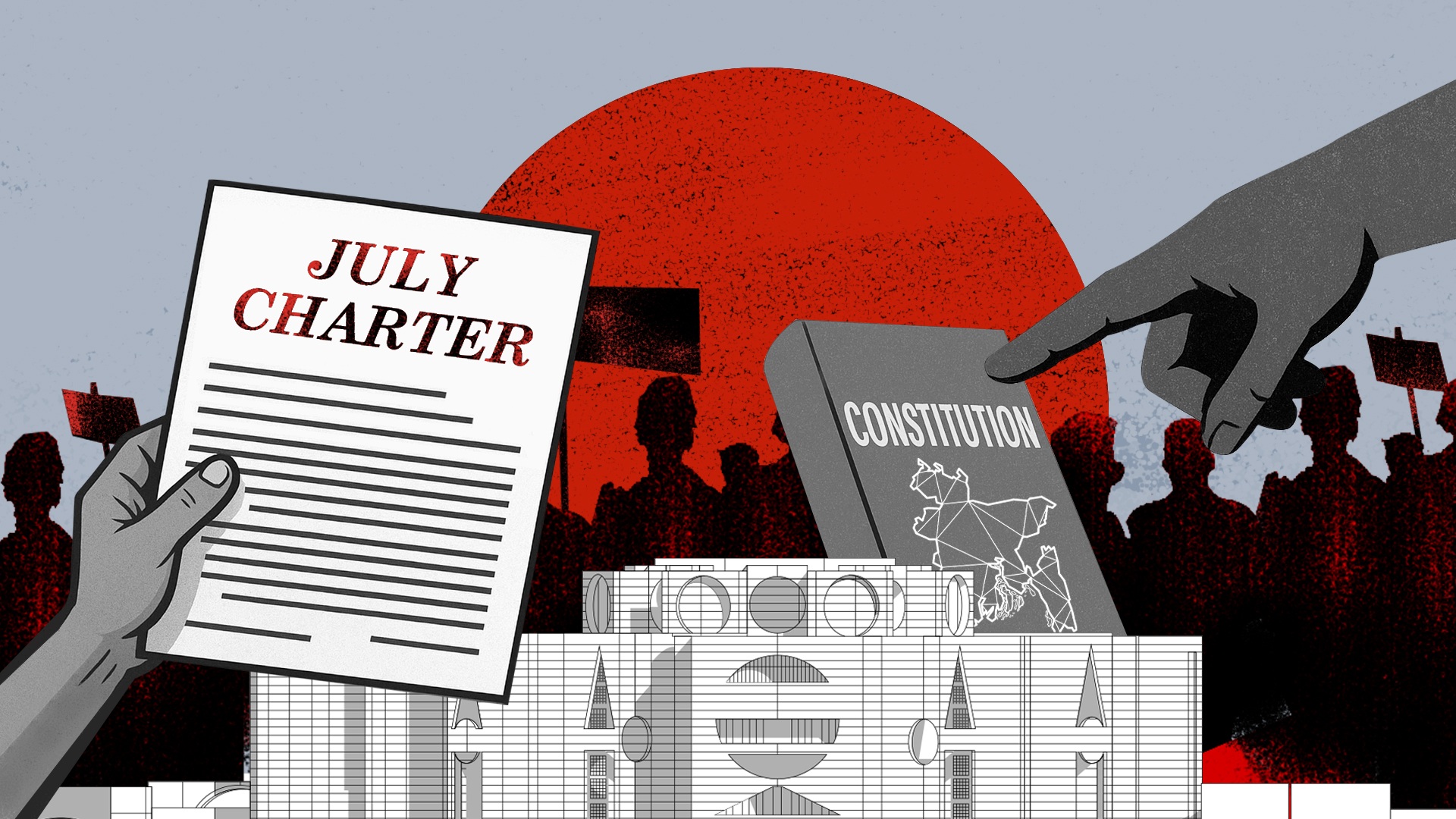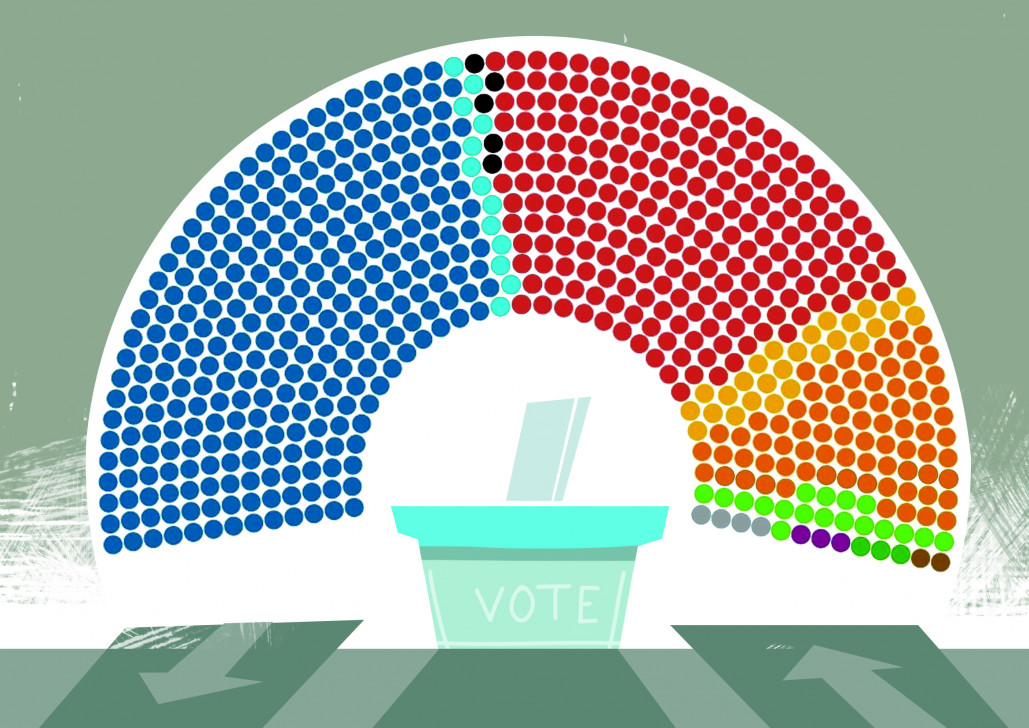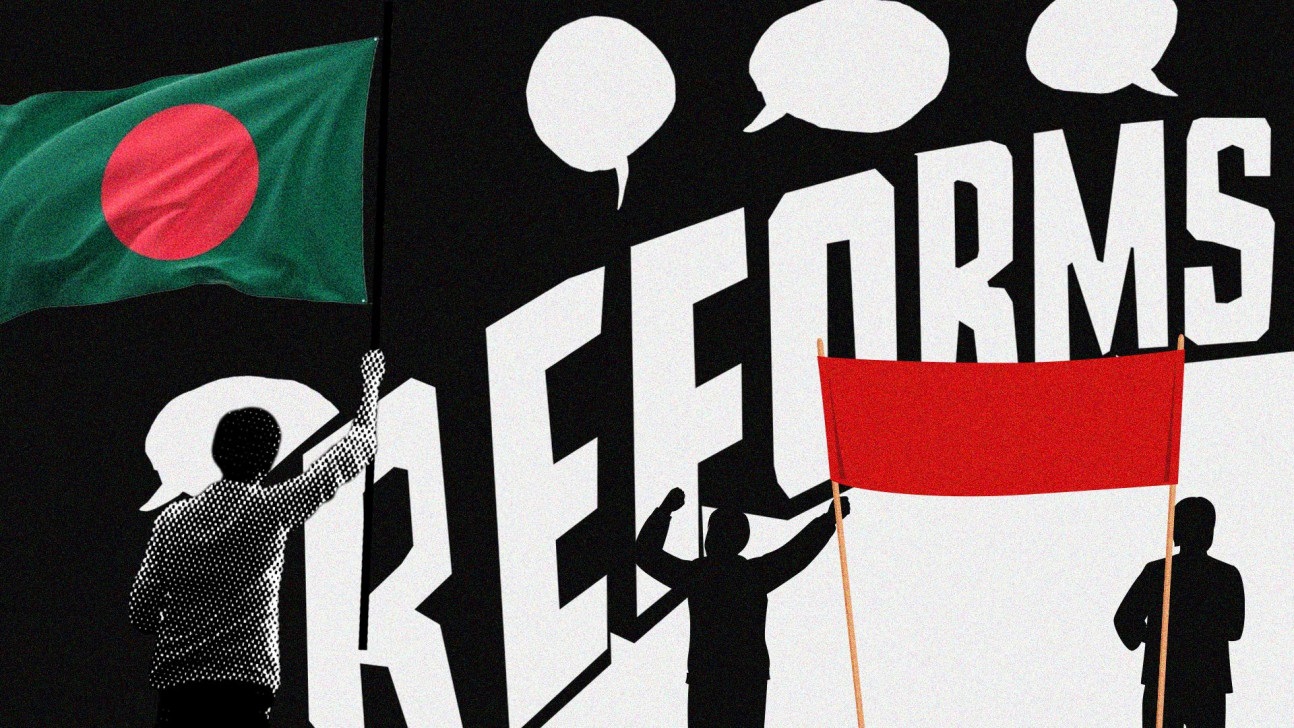How to overcome the impasse on July Charter

The idea of what we now call the July National Charter was born of collective sacrifice. In the July uprising in 2024, many people gave their lives and many more were injured or braved the risks of repression and mortal danger, for nothing more radical than what should have been theirs by right. For 15 and a half years, their voices had been stifled, their votes suppressed, and their futures mortgaged by an extractive state. Through their sacrifices, they hoped that democracy could be restored, not as a hollow form but as a living practice.
The charter was supposed to have been adopted in July this year, but that moment passed without resolution. Instead, it remains stalled over disagreements on how it should be implemented. The term of the commission entrusted with building consensus has already been extended twice. With its tenure now stretched to October 15, the nation hopes the task will finally be completed. Otherwise, uncertainty may deepen and further political instability may follow.
The lure of misplaced proposals
A pervasive sense of mistrust, fuelled more by political calculation than by reality, has paralysed the charter's progress. The current dispute is not about its content but about the mode of implementation. The anxiety that the party winning the next election will simply disregard the charter has been politically manufactured, providing cover for proposals that veer towards impractical or even dangerous shortcuts.
One such proposal is the adoption of proportional representation (PR) system. The PR system works in settings with strong institutions and independent electoral management bodies, developed after years of mature discourse. Bangladesh, by contrast, has weak institutions as well as an electoral administration still struggling to regain public trust. In such a context, PR has proven to be rather destabilising. In Sri Lanka, for example, experimentation with mixed systems failed to reduce polarisation. In Nepal, PR produced fragile coalitions that collapsed repeatedly, with 13 administrations in just over a decade since 2008, not counting the current one that emerged from a recent mass uprising.
Another suggestion is for the charter to be enacted through a decree or "constitutional order" by the interim government. While superficially appealing, such an approach suffers from a legitimacy deficit. International experience demonstrates that extra-constitutional decrees often backfire. In Pakistan, the state's repeated resort to constitutional orders by military-backed regimes eroded democratic institutions. In Latin America, presidential decrees imposed without parliamentary oversight triggered prolonged constitutional crises.
Constituent power of the people
The interim government, with the Supreme Court's advisory reference under Article 106 of the constitution, operates under the doctrine of necessity, since power cannot remain in a vacuum after the fall of a discredited regime. The constitution remains in force, neither suspended nor abrogated. This is, therefore, not a revolutionary government.
The constituent power lies with the people, and it is through elections that this power is to be exercised. Any attempt to bypass electoral and parliamentary legitimacy would contradict the very spirit of the July uprising, which sought to reclaim democracy, not dilute it. A durable settlement, therefore, requires a return to the ballot box.
Therefore, a decent way forward is to place the charter before the people. There could be a referendum on the consensus points, which would give it unassailable legitimacy, after which the next parliament could implement its provisions if endorsed. On contentious issues where political parties disagree, the electorate must arbitrate through their votes on party manifestos. This is the essence of democratic politics: compromise in some areas, contestation in others, with the people serving as the final judge.
A legal nuance can be advanced here. Some provisions of the charter touch upon the "basic structure" of the constitution. Jurisprudence across South Asia, most famously the Indian Supreme Court's Kesavananda Bharati case of 1973, holds that the basic structure cannot be altered by ordinary amendment. The Supreme Court of Bangladesh has also adopted similar reasoning. To overcome this, the referendum could include a clause asking for authorisation for the next parliament to amend those provisions relating to the basic structure.
Comparative experiences reinforce the importance of sequencing reform through electoral legitimacy. In Egypt, President Mohamed Morsi's attempt to impose constitutional changes by decree in 2012 sparked mass protests and political turmoil, contributing to his ouster and paving the way for renewed authoritarianism. The lesson is clear: legitimacy cannot be manufactured; it must be conferred through votes.
The danger of delay in this regard cannot be overstated. The country's economic condition is deteriorating. Extreme poverty has risen to 9.35 percent this year, according to an estimate by the Power and Participation Research Centre (PPRC). Meanwhile, youth unemployment is escalating, with one in three graduates remaining jobless for upto two years, according to the Bangladesh Bureau of Statistics' recent Labour Force Survey. Inflation has eroded real wages, particularly in the informal sector that sustains about 85 percent of the workforce. Global experience shows that prolonged political paralysis under such economic stress risks social unrest. Bangladesh cannot afford another erosion.
Election is the only way out
The July Charter embodies the people's aspirations for a democratic, accountable and inclusive polity. But those aspirations will remain unfulfilled if the charter is held hostage to mistrust or political manoeuvring. The process has already run past its original July deadline, so October 15 must mark the point of its completion. Anything less would prolong uncertainty, weaken public confidence, and risk squandering the momentum of the uprising.
The charter must not be imposed or toyed with; it must be owned and respected. That ownership comes only through the constituent power of the people. An election, to be held in the first week of February through consensus and with the charter as the central agenda, is the only viable path to overcome the impasse. This is a historic opportunity to unlock Bangladesh's untapped democratic potential.
Dr Rashed Al Mahmud Titumir is professor in the Department of Development Studies at the University of Dhaka.
Views expressed in this article are the author's own.
Follow The Daily Star Opinion on Facebook for the latest opinions, commentaries and analyses by experts and professionals. To contribute your article or letter to The Daily Star Opinion, see our guidelines for submission.




 For all latest news, follow The Daily Star's Google News channel.
For all latest news, follow The Daily Star's Google News channel. 




Comments